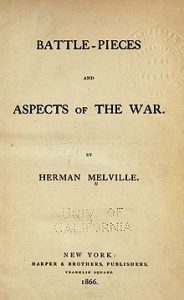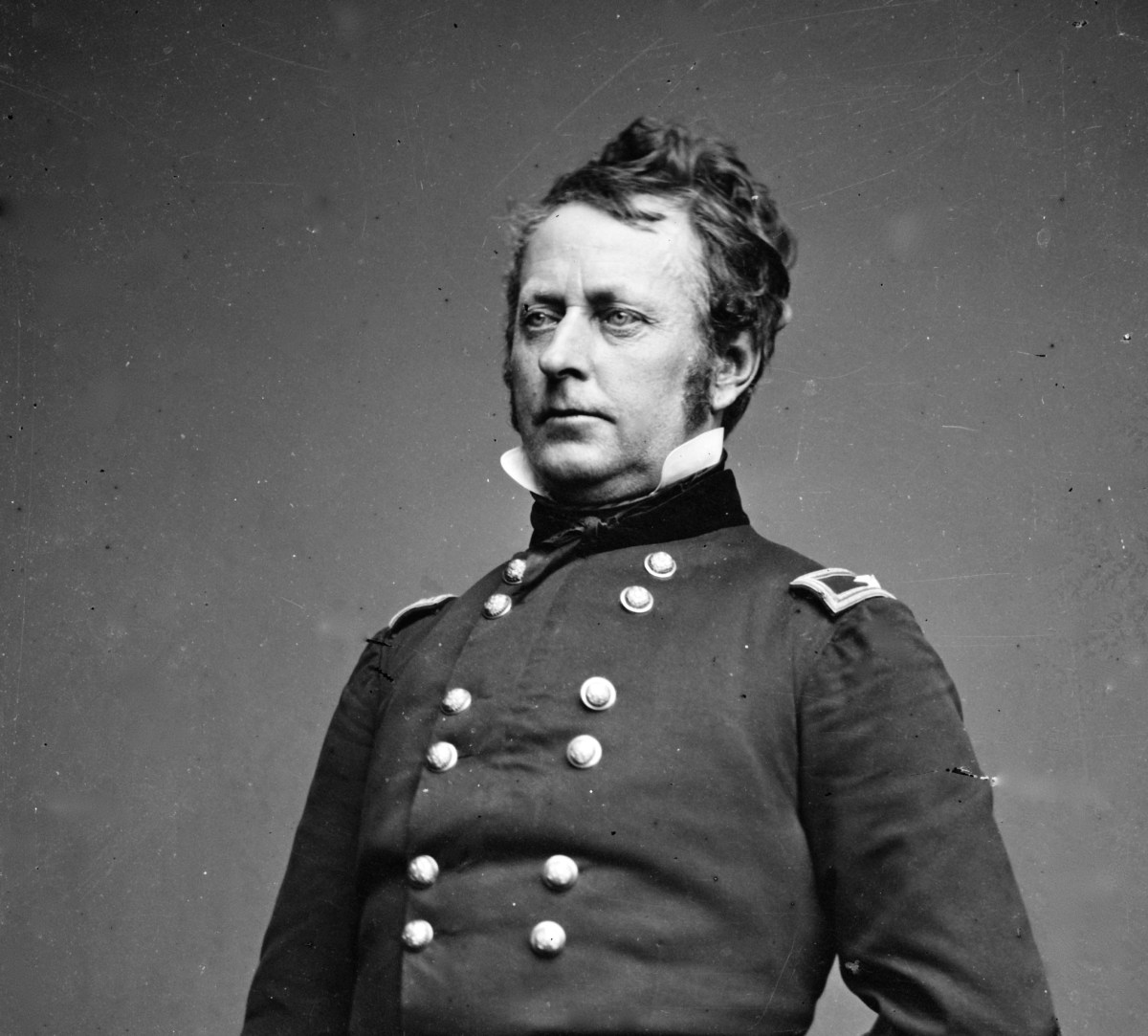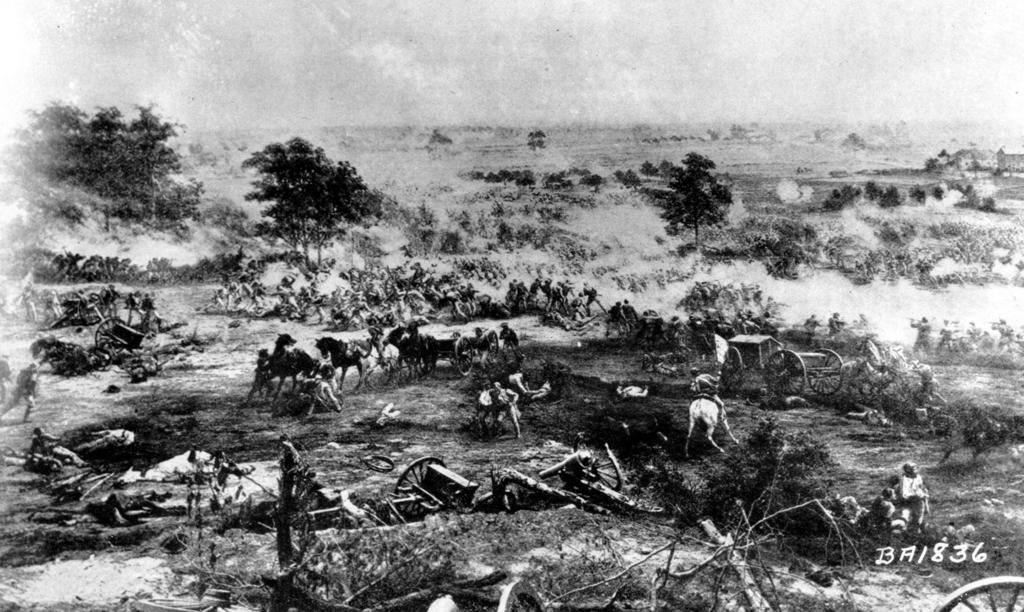A Poet’s Perspective: Melville On Pickett’s Charge
 So few poets chose to write about the American Civil War that it is sometimes described as the “unwritten war.” Herman Melville, however, was among the few who chose to do so. His collection of poems on the war, in which he views the conflict through the lens of human values, was published in 1866 under the title Battle-Pieces and Aspects of the War.
So few poets chose to write about the American Civil War that it is sometimes described as the “unwritten war.” Herman Melville, however, was among the few who chose to do so. His collection of poems on the war, in which he views the conflict through the lens of human values, was published in 1866 under the title Battle-Pieces and Aspects of the War.
Melville’s unique portrayal of the war, while ultimately failing to provide readers with an accurate description of events, is a fresh perspective based on the feelings at the nation apart.
The stanza below comes from his poem Gettysburg, in which he reflects on the most important engagement of the war:
O pride of the days in prime of the months
Now trebled in great renown,
When before the ark of our holy cause
Fell Dagon down—
Dagon foredoomed, who, armed and targed,
Never his impious heart enlarged
Beyond that hour; god walled his power,
And there the last invader charged.
The Battle of Gettysburg took place in July 1863 as General Robert E. Lee’s troops swept north to bring the fighting out of Virginia and into Maryland and Pennsylvania.

General Lee, fresh from his victory in Chancellorsville, believed strongly that his push into northern territory would steal the fight from his enemies.
Union Commander Maj. General Joseph Hooker, who had been directed to pursue Lee, was removed from command following his failure in Chancellorsville. Hooker was replaced by General George G. Meade just three days before the two forces clashed in Gettysburg.
The three-day battle culminated in a massive infantry assault dubbed “Pickett’s charge,” which Melville describes in the second stanza of Gettysburg:
He charged, and in that charge condensed
His all of hate and all of fire;
He sought to blast us in his scorn,
And wither us in his ire.
Before him went the shriek of shells-
Aerial screamings, taunts and yells;
Then the three waves in flashed advance
Surged, but were met, and back they set:
Pride was repelled by sterner pride,
And Right is a strong-hold yet.
Pickett’s charge is named for Maj. Gen. George Pickett, one of three Confederate generals

Pickett’s charge, which occurred patriotically on July 3rd, was designed to take out what Lee saw as a weak spot in the Union line. The charge began with a massive but unsuccessful artillery bombardment intended to weaken the Union line, to allow for a successful attack.
Believing the bombardment had worked, Lee ordered more than 12,000 soldiers straight into the North’s fully functioning defense.
Those who weren’t mowed down in the charge took shelter near a small stone wall, but they couldn’t hold the position.
Before our lines it seemed a beach
Which wild September gales have strown
With havoc on wreck, and dashed therewith
Pale crews unknown –
Men, arms, and steeds. The evening sun
Died on the face of each lifeless one,
And died along the winding marge of fight
And searching-parties lone.
After three unsuccessful assaults against the Union line, Lee’s forces retreated from Cemetery Ridge with a casualty rate higher than 50%. There were over 2,600 casualties in

Pickett’s division alone, compared to 1,500 total casualties on the Union side. Total losses for the Confederates are estimated at around 1,100 killed, 4,000 wounded, and many more captured.
As the broken Confederates made their way back to Seminary Ridge, Lee tried in earnest to rally the troops and reinforce his center line. However, understandably so, the troops that had survived the field of horrors, were no long able to fight a sentiment shared by many including General Pickett, who said to Lee, when asked to rally his division, “General, I have no division.” Pickett never forgave Lee for ordering the charge against the Union Center.
The Battle of Gettysburg infused a toxic sense of defeat into the South from which it never recovered. But for the North, it was a key turning point in the war as well as proof that General Lee’s seeming “charm of invincibility” was broken.
As Melville writes:
Sloped on the hill the mounds were green,
Our center held that place of graves,
And some still hold it in their swoon,
And over these a glory waves.
The warrior-monument, crashed in fight,
Shall soar transfigured in loftier light,
A meaning ampler bear;
Soldier and priest with hymn and prayer
Have laid the stone, and every bone
Shall rest in honor there.
4 Responses to A Poet’s Perspective: Melville On Pickett’s Charge